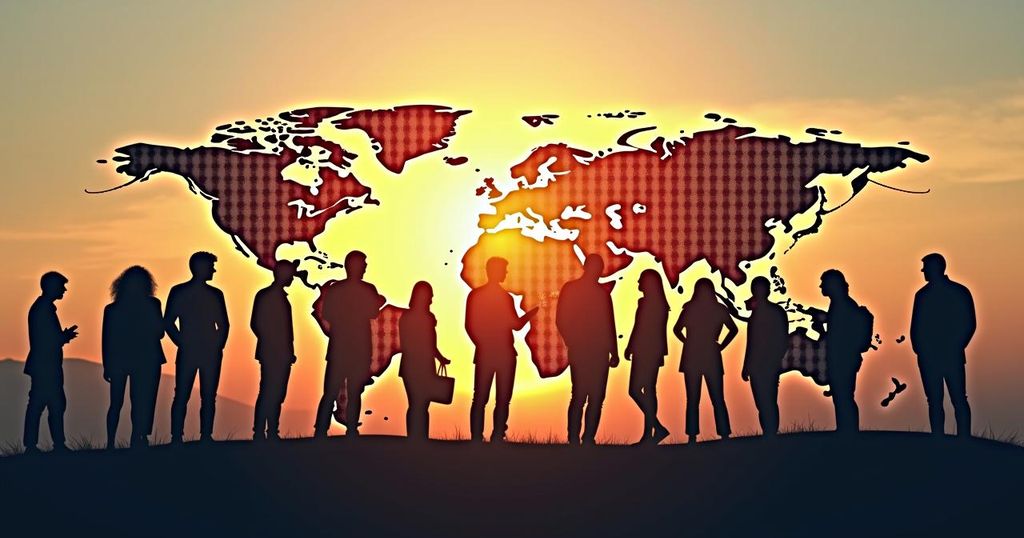Philippines Advocates Multilateralism for Global Peace at UN General Assembly
At the UN General Assembly, the Philippines, represented by Foreign Affairs Secretary Enrique Manalo, advocated for renewed multilateralism to address international disputes, emphasizing global cooperation to tackle critical issues such as climate change, humanitarian crises, and geopolitical conflicts in the South China Sea, while adhering to the international rules-based system and engaging in collaborative dialogues with other nations.
The Philippine government advocated for enhanced multilateralism as a means to address global disputes during the recent session of the United Nations General Assembly held on Saturday. In his address at the General Debate of the 79th Session of the UNGA, Foreign Affairs Secretary Enrique Manalo emphasized the urgent need to revitalize the United Nations’ agenda and processes, particularly against the backdrop of a newly adopted “Pact for the Future,” which refocuses the UN’s efforts as the international community grapples with ongoing conflicts in Ukraine, Gaza, and Sudan, as well as humanitarian crises, climate change issues, persistent poverty, international inequalities, and disruptive technologies. Secretary Manalo asserted that reform is necessary for multilateralism to effectively respond to international challenges and achieve developmental goals on a global scale. As a founding member of the United Nations, the Philippines is committed to collaborating with other nations to forge comprehensive solutions across numerous aspects of multilateralism. Moreover, he advocated for the rejection of narratives portraying the South China Sea as a mere battleground for major power rivalry, highlighting the critical importance of adherence to international law for maintaining peace, stability, and prosperity in the Asia-Pacific region. Manalo reiterated the Philippines’ steadfast commitment to the international rules-based system, a sentiment underscored by President Ferdinand Marcos Jr. Asserting its rights within the South China Sea, Manalo reaffirmed the Philippines’ dedication to the UN Charter and the Manila Declaration on the Peaceful Resolution of Disputes. Throughout the high-level week from September 22 to 28, 2024, he led the Philippine delegation to the UNGA and participated in various meetings, including engagements with high-ranking officials from different departments and other member states. Prior to the high-level week, Secretary Manalo represented the Philippines at the Summit of the Future, where a consensus document named the Pact for the Future was adopted. In his address, he stated, “The Pact for the Future is a testament that global problems require global solutions and that a better world is possible when States commit to working together towards a common vision.” This blueprint encompasses 52 action points aimed at energizing multilateral responses to pressing global issues. Manalo further articulated the Philippines’ substantial contributions toward addressing climate change challenges and appealed to developed nations to adhere to their commitments under the UN Climate Change Convention and the Paris Agreement. He underscored the nation’s acute vulnerability to climate impacts, making the Philippines a leading advocate for enhancing climate and disaster risk resilience. During the high-level week, Secretary Manalo contributed to significant discussions involving various high-level meetings, engaging with a diverse range of leaders from 46 nations, including Bhutan, Cape Verde, Antigua and Barbuda, and several others, as part of multilateral dialogues aimed at reinforcing maritime safety and security in the Asia-Pacific.
During its participation in the annual United Nations high-level assembly, the Philippines emphasized the importance of multilateralism in resolving global issues. With ongoing crises in various regions, the Secretary of Foreign Affairs articulated the need for reframing the UN’s initiatives under a shared agenda, specifically addressing challenges relating to humanitarian crises, climate change, poverty, and geopolitical tensions. The Philippines, as a founding UN member, remains committed to international law, particularly within the contentious context of the South China Sea, asserting its stance on sovereignty and collaborative peace-building efforts.
In conclusion, the Philippines has reiterated its position on the necessity for multilateralism to effectively tackle global conflicts and humanitarian crises during the UNGA. Secretary Enrique Manalo’s remarks reflect a commitment to reforming multilateral approaches, enhancing collaboration among nations, and prioritizing adherence to international law, particularly concerning issues surrounding the South China Sea. Ultimately, the Philippines is poised to play a vibrant role in fostering a collaborative international community focused on peace, resilience, and sustainable development.
Original Source: www.manilatimes.net




Post Comment